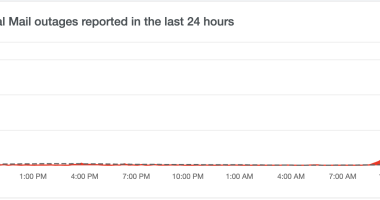
A Chinese software developer trawled Alibaba Group Holding Ltd. ’s popular Taobao shopping website for eight months, clandestinely collecting more than 1.1 billion pieces of user information before Alibaba noticed the scraping, a Chinese court verdict said.
The software developer began using web-crawling software he designed on Taobao’s site starting in November 2019, gathering information including user IDs, mobile-phone numbers and customer comments, according to a verdict released this month by a district court in China’s central Henan province. When Alibaba noticed the data leaks from Taobao, one of China’s most-visited online retail sites, the company informed the police, the court said.
A spokeswoman said Alibaba proactively discovered and addressed the incident and was working with law enforcement to protect its users. She wouldn’t elaborate on how many people were affected. No user information was sold to a third party and no economic loss occurred, she said. About 925 million people use Alibaba’s Chinese retail platforms at least once a month, according to the company.
While the developer didn’t obtain encrypted information such as passwords, some of the data he scraped, including phone numbers and a portion of usernames, isn’t publicly presented on the website.
Chinese legal experts say a data leak involving mobile-phone numbers would have more far-reaching consequences in China than in other parts of the world. In China, where people are required to register with real name identification before obtaining a mobile phone number, such numbers are considered by law to be personal information, said Annie Xue, a Beijing-based lawyer at GEN law firm.
In addition, Chinese consumers sign up for most of the internet services they use with their mobile phones, and knowing a person’s cellphone number would make it easier for a bad actor to pin down someone’s social-media accounts and other personal information, said Clement Chen, an assistant professor of law at the University of Hong Kong.
Hangzhou-based Alibaba has come under enhanced scrutiny from regulators since late last year, when authorities called off a blockbuster initial public offering of its financial affiliate Ant Group Co. days before the scheduled listing.
Huge consumer data leaks have become commonplace in China in recent years, as the country’s data-security regulation struggles to catch up with its technology advancements. Personal information from these leaks is often sold on the black market for pennies and has resulted in a fledgling privacy movement among Chinese citizens.
Chinese lawmakers have pushed for more oversight to better protect personal data. Last week, China passed a new data-security law to enhance Beijing’s control over data flows within the country and improve consumer data protection. The law, along with proposed legislation modeled on the European Union’s data-protection regulation, is intended to reinforce data rules such as the cybersecurity law introduced in 2017.
The Henan court filing, dated in May but released this month, indicated that the software developer, surnamed Lu, passed the phone numbers he collected to his employer. The employer, who operated a company doing promotions for sellers on Taobao, used the information to target clients and claim coupons from Taobao. The two were each sentenced to more than three years in prison. It isn’t uncommon for Chinese court rulings to be publicly released months after the verdict, and published rulings typically include only people’s surnames.
Though Alibaba wasn’t blamed in the ruling, the company could still face administrative penalties under the 2017 cybersecurity law, said You Yunting, a senior partner at Shanghai Debund Law Offices. Alibaba declined to comment on whether it had informed users of the incident.
Since Ant’s IPO was called off, antitrust regulators have levied a record $2.8 billion fine against Alibaba for abusing its dominant position in the country’s online retail space and have asked Ant to overhaul its businesses to fall in line with regulation.
Large global tech companies including Facebook Inc. have also had to contend with data leaks. In April, Facebook blamed “malicious actors” for scraping data including names and phone numbers of more than 530 million users. Legal and privacy experts said then that the social-media firm chose to describe the incidents as data scraping instead of hacking to avoid triggering laws and rules in various jurisdictions requiring companies to report data breaches to regulators and the public.
Write to Yang Jie at [email protected] and Liza Lin at [email protected]
Copyright ©2020 Dow Jones & Company, Inc. All Rights Reserved. 87990cbe856818d5eddac44c7b1cdeb8
Appeared in the June 16, 2021, print edition as ‘Software Developer Scraped User Data From Alibaba Site.’








